Coronavirus world: lockdown eases in India, as spike in cases puts UK’s ‘Freedom Day’ in doubt
Markets and shopping malls in New Delhi will be allowed to reopen from Monday in a further easing of the Covid lockdown, as infections fall in major Indian cities.
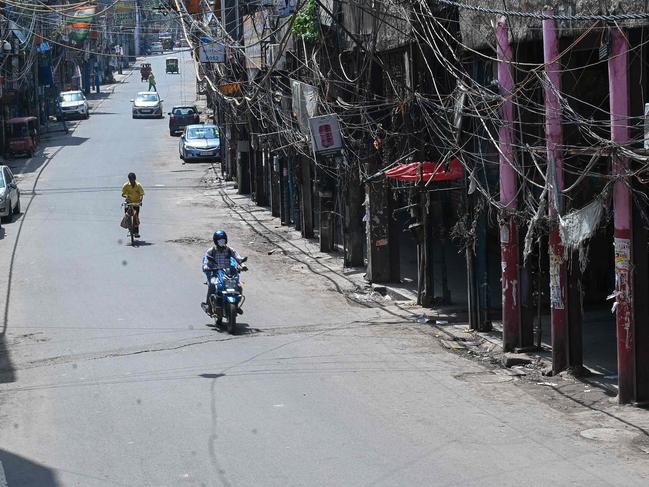
World
Don't miss out on the headlines from World. Followed categories will be added to My News.
Markets and shopping malls in New Delhi will be allowed to reopen from Monday in a further easing of the Covid-19 lockdown, as infections fall in major Indian cities after weeks of restrictions.
Delhi Metro will also resume services at 50 per cent capacity, the city’s chief minister Arvind Kejriwal said.
Markets and malls will operate on alternate days, with half of them open on any given day.
Offices can also reopen at half capacity but Kejriwal urged people to still try to work from home. The easing comes after Delhi allowed construction sites and factories to reopen last week.
“They have been open for a week but the Covid-19 situation is still under control, and we have less than 500 fresh cases in the last 24 hours,” Kejriwal said.
“It is important to bring the economy back on track now that the Covid-19 situation improving. We pray that the situation remains the same.”
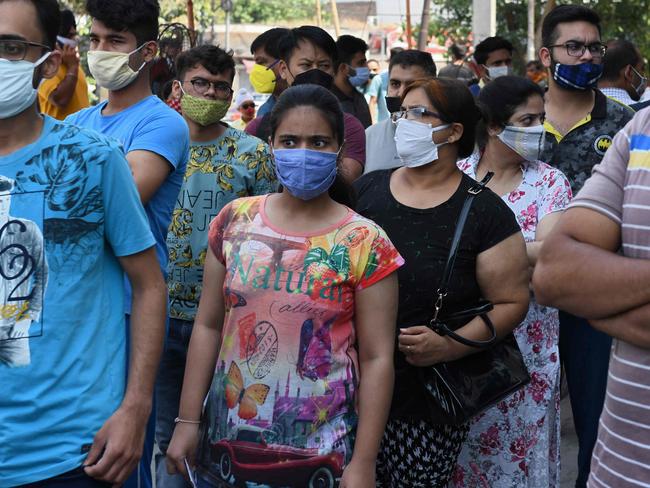
The government of Maharashtra state, which includes India’s economic powerhouse Mumbai, announced a five-level plan to ease restrictions depending on infection rates and hospital bed occupancy.
In level-one areas, those with infection rates below five per cent and hospital bed occupancy below 25 per cent, all shops, restaurants and malls will be allowed to reopen.
But level-five districts, with infection rates over 20 per cent, will remain under severe movement restrictions.
Daily infections reported across India have dropped to about 120,000 from more than 400,000 in May, according to official statistics.
Deaths have also fallen, with 3380 reported in the previous 24 hours, although this is widely seen as a major underestimate. At least 344,082 people in the country have lost their lives to the coronavirus, which is now surging in parts of rural India.
Delhi reported about 400 new infections on Saturday, down from about 25,000 daily cases when the lockdown was announced seven weeks earlier.
The devastating surge was blamed on new virus variants and the government having allowed most activity to return to normal including mass religious and political gatherings.
Meanwhile, India’s vaccination program is making slow progress due to shortages, confusion and squabbling between the central government and state authorities.
So far about 180 million people, only 14 per cent of the population, have received one dose, and 45 million, or 3.4 per cent, two shots.
UK Covid CASES SPIKE PUTTING ‘FREEDOM DAY’ IN DOUBT
Covid cases in Britain have risen 50 per cent in a week, putting the easing of restrictions across the UK on June 21 in doubt.
The leap comes as cases of the Indian variant of the virus surge.
the rise in infections has cast fresh doubt on the British government’s final Step 4 end to lockdown due to take place on June 21.
Data suggests the mutation is twice as likely to cause hospitalisation, leaving this month’s – dubbed “Freedom Day” in the UK – hanging in the balance.
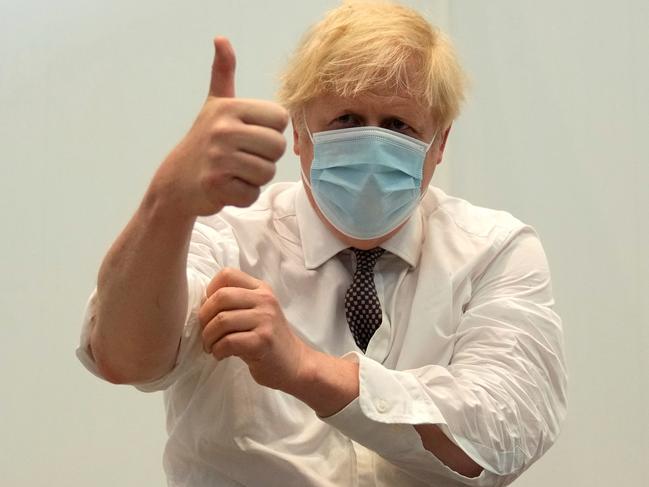
Brits will be told about the government’s decision on easing restrictions on June 14.
A Public Health England report showed people who tested positive for the Indian variant – also known as the Delta variant – were at 161 per cent more risk of needing hospital treatment within 14 days.
The “Nepal variant” found in Britain – a mutated version of the Indian variant ripping through the country – has also sparked concern.
Meanwhile, the European Union has reiterated its reservations about the temporary lifting of patents, as requested by India and South Africa and backed by the White House, in a proposal to boost availability of vaccines.
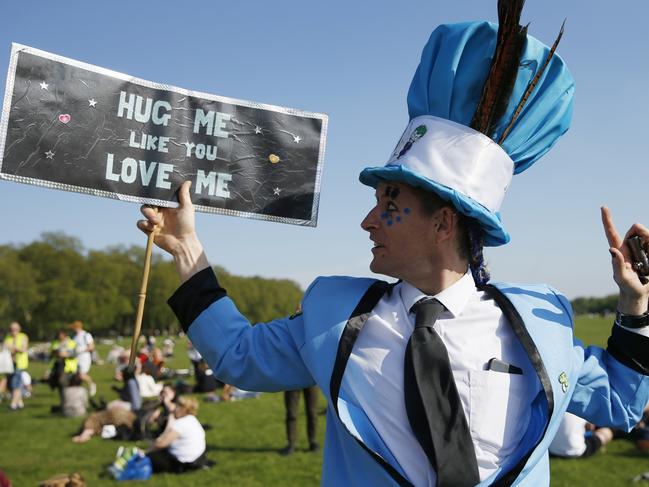
HEALTH CHIEFS TO BOLSTER EFFORTS AGAINST FUTURE THREATS
It comes as G7 health ministers meeting in Britain agreed on Friday local time to step up co-ordination against future pandemics and other threats, but made no new commitments to speed up vaccine deliveries to less developed countries.
Ministers from the group of wealthy nations, meeting in Oxford in southern England ahead of next week’s G7 summit, agreed a new charter to deliver international clinical trials of treatments and vaccines.
The agreement aims to make it easier and quicker to share results from vaccine and therapeutic trials to tackle Covid-19 and future health issues, the ministers said in a joint declaration.
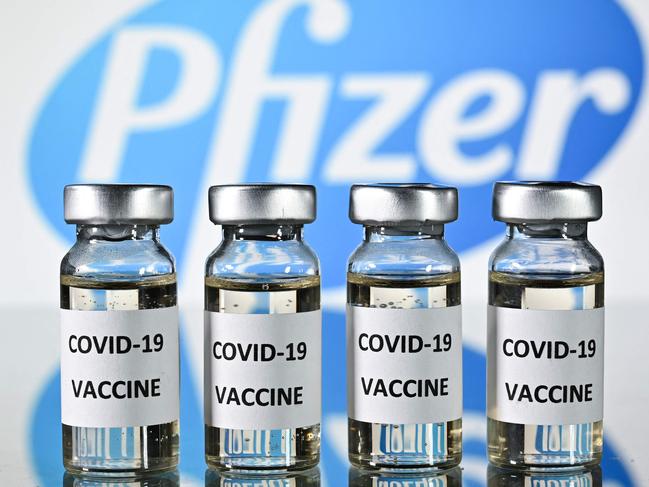
The pact should help to avoid unnecessary duplication of efforts and speed up the elimination of medicines that do not work, the statement added.
The ministers also agreed to collaborate on mutual recognition of testing and vaccination certificates across countries.
British Health Secretary Matt Hancock hailed the “landmark agreements” as ensuring the world would be “better prepared for future threats”.
They contain “a series of measures to make us all safer by improving clinical trials, quicker and wider access to safe vaccines, better use of data, (and) more accurate health surveillance tools,” he said in a statement.
But facing growing calls to ensure a fairer global distribution of vaccine doses, the G7 health gathering failed to break new ground, reiterating previous commitments to share doses “as soon as possible”.
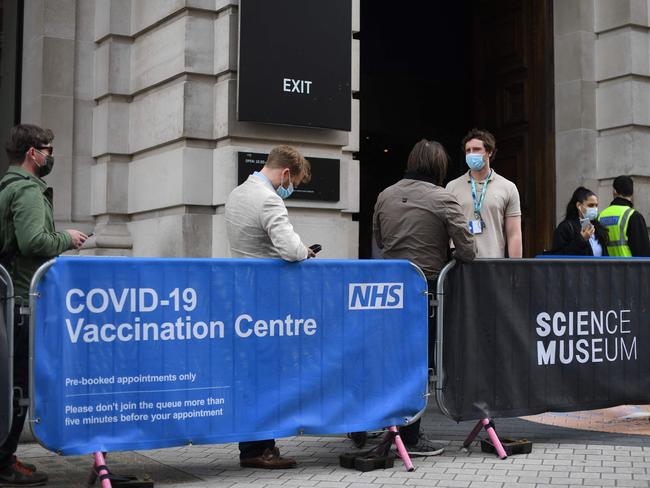
Poorer countries, which do not have enough stocks for comprehensive inoculation programs, have lagged behind in their jabs’ drives as they wait for stocks.
G7 countries are already committed to support the Covax global vaccine sharing program, but the World Health Organisation and others have warned it is short of around 200 million doses in the short-term.
US President Joe Biden outlined his plans Thursday to export the first of the 80 million shots that the United States has pledged to distribute globally by July.
Seventy-five per cent of the shots will be disbursed via the Covax program, set up to supply poorer nations with vaccine doses.
But Britain — which has ordered more than 400 million doses of various vaccines — has repeatedly said it is not yet ready to donate its excess doses.
“We emphasise our support for global sharing of safe, effective, quality and affordable vaccine doses including working with COVAX when domestic situations permit,” the G7 health ministers’ declaration said.
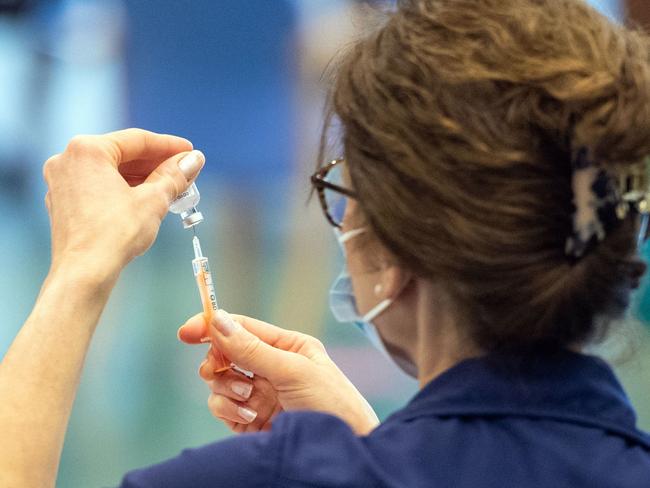
COURT TO RULE ON EU-ASTRAZENECA DISPUTE
A Belgian judge presiding over a legal dispute between the EU and AstraZeneca over a shortfall of Covid-19 vaccine doses to Europe said Friday local time she will give her ruling within a month.
She set the deadline in a short hearing in her Brussels court held to ask technical questions of both sides.
The European Commission, acting on behalf of the EU’s 27 member states, is suing the Anglo-Swedish pharmaceutical giant for failing to deliver millions of vaccine doses it had promised this year in a contract with Brussels.
But AstraZeneca has argued it is only compelled to make “best reasonable efforts” to meet deliveries. The firm’s CEO Pascal Soriot has said production was prioritised for Britain, as the vaccine was developed at Oxford University.
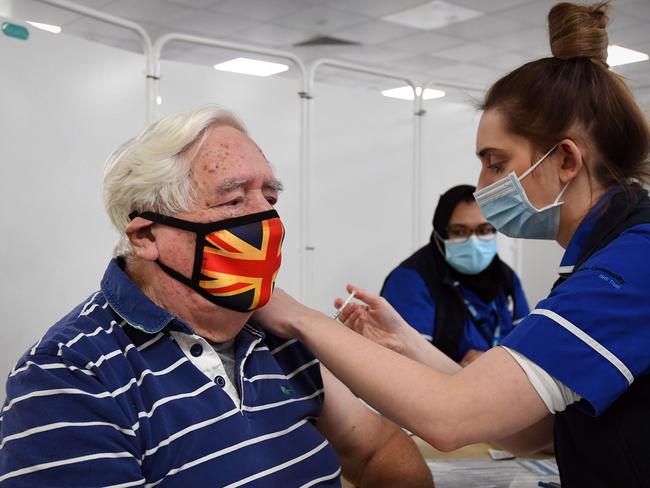
Under the contract with the EU, AstraZeneca had pledged to deliver 300 million doses by the end of June. But it subsequently reduced delivery forecasts to 120 million, citing production problems.
The company delivered 30 million doses in the first quarter. According to figures from an EU official with knowledge of deliveries, AstraZeneca is on track to supply 70 million doses in the second quarter — falling 20 million doses short of even the reduced schedule.
The EU has called on the Belgian court to fine AstraZeneca 10 euros per dose and per day if those 20 million doses are not provided on time.
Brussels had originally counted on AstraZeneca’s vaccine to be its workhorse jab for the first part of this year. But because of the delivery problems it has turned more to the BioNTech/Pfizer vaccine, which now accounts for more than 70 per cent of EU supplies.
An AstraZeneca spokesman told media on Friday that it has already submitted to the Belgian court evidence that it had informed the European Commission last year during contract negotiations that Britain would have priority on vaccines produced there.
WHITE HOUSE BACKS FAUCI
The Biden Administration is backing America’s top doctor, Dr Anthony Fauci, over emails that discussed the origins of Covid-19.
A trove of emails from Dr Fauci were released by the US Government to Buzzfeed, CNN and the Washington Post.
The emails revealed Dr Fauci discussed the theory that the virus escaped from a Chinese lab in the early days of the pandemic.
Scientists reportedly told Dr Fauci that the virus had “unusual features”.
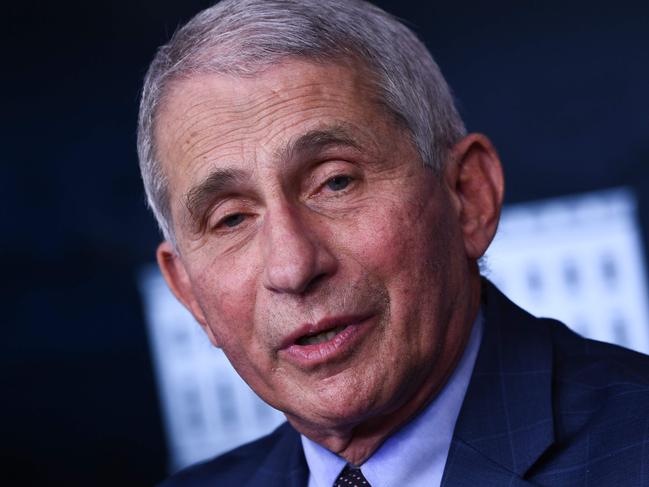
“The president and the administration feel that Dr. Fauci has played an incredible role in getting the pandemic under control, being a voice to the public throughout the course of the pandemic,” White House press secretary Jen Psaki told reporters in a briefing Thursday.
Dr Fauci has not yet commented on the emails.
Ms Psaki said Mr Biden has not been briefed on the contents of Fauci’s released emails, noting many are at least a year and a half old.
“He’s been an undeniable asset in our country’s pandemic response,” she said, “but it’s obviously not that advantageous for me to relitigate the substance of emails from 17 months ago.”
LAB THEORY DISCUSSED IN EMAILS
The lab theory was dismissed at the time, but Mr Biden has recently directed US intelligence to do a deeper investigation.
Steve Scalise, who serves as the top Republican on the House Select Subcommittee on the Coronavirus Crisis, and House Oversight Committee Ranking Member James Comer penned a letter to top Democrats on the committees, Chairman James Clyburn and Carolyn Maloney, saying it is “imperative” that Dr Fauci appear before the committees, reports Fox News.
Mr Scalise and Mr Comer wrote that Fauci’s emails, which were released through a Freedom of Information Act filing this week, “debunk many Democrats’ claims from the past year,” including that he and other scientists were “‘muzzled’” by the Trump administration.
“More importantly, the emails contain new evidence regarding the origins of COVID-19, including the possibility it leaked from a US taxpayer funded laboratory,” they wrote.
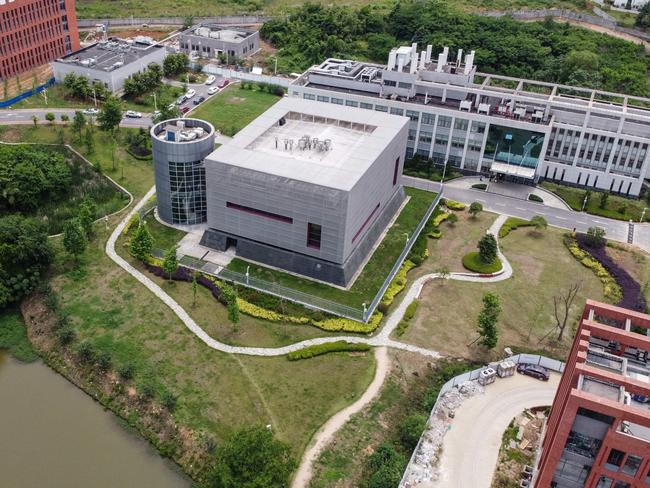
“It is now imperative that Dr Fauci come before our Committees to provide information related to the origins of the novel coronavirus as well as the US government’s role in funding research that may have contributed to the development of the novel coronavirus,” they continued.
“The American people have a right to know what our government knew about the origins of the pandemic and when it was known.”
Mr Scalise and Mr Comer also renewed their requests of Mr Clyburn and Ms Maloney to “convene hearings to examine the origins of COVID-19, the possibility that it leaked from a CCP-controlled laboratory, and any involvement of U.S. taxpayer funds.”
They also demanded “unreacted versions of all of Dr Fauci’s recently released emails.”
“Your continued inaction while facing mounting evidence of the CCP’s malicious conduct is concerning,” they wrote.
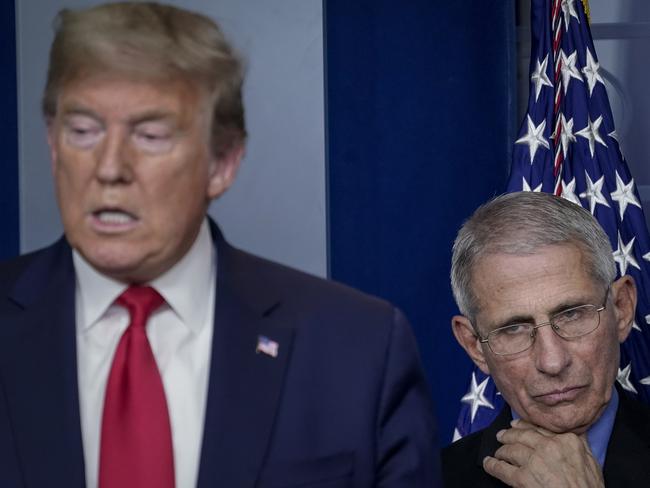
The Fauci emails have sparked fierce backlash among Republicans, specifically being critical of his comments on mask-wearing, the potential that the coronavirus leaked from a lab the US gave money to, and more.
Mr Scalise and Mr Comer last week demanded Clyburn and Maloney launch a “full and complete” investigation of China’s role in the origins of COVID-19.
Meanwhile, President Biden released a rare statement last week, revealing that the US intelligence community has “coalesced around two likely scenarios” for the origins of COVID-19, “including whether it emerged from human contact with an infected animal or from a laboratory accident,” and asked for “additional follow-up”.
Mr Biden asked the intelligence community to “redouble their efforts to collect and analyse information that could bring us closer to a definitive conclusion, and to report back to me in 90 days,” Mr Biden said.
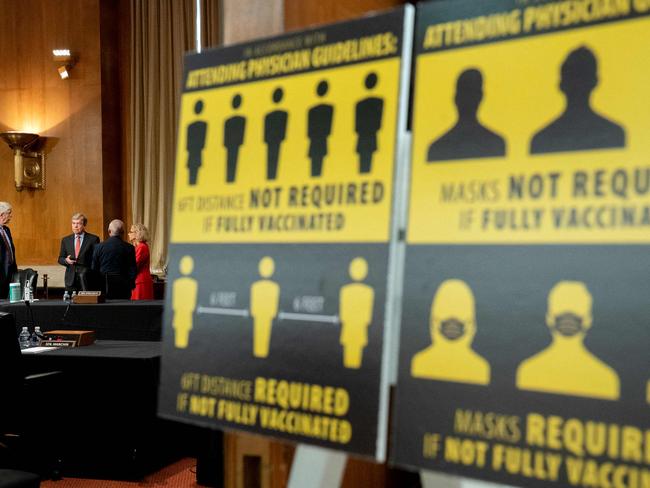
“As part of that report, I have asked for areas of further inquiry that may be required, including specific questions for China,” he added while noting that the effort would include work by “our National Labs and other agencies of our government to augment the Intelligence Community’s efforts” and directing the IC to “keep Congress fully apprised of its work”.
“The United States will also keep working with like-minded partners around the world to press China to participate in a full, transparent, evidence-based international investigation and to provide access to all relevant data and evidence,” Mr Biden said.
But it was China’s refusal to support the World Health Organisation’s investigation into the origin of COVID-19 that spurred the Biden administration to accelerate the declassification of US intelligence and the release of the president’s statement on Wednesday, according to Fox News.
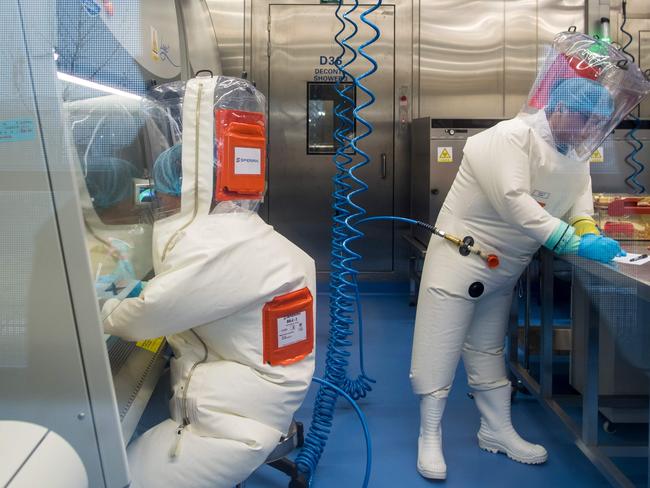
An administration official said that Mr Biden was briefed on the intelligence in the Presidential Daily Briefing earlier this month, which revealed that US intelligence officials are torn between whether COVID-19 emerged from human contact with an infected animal or from a laboratory accident.
BIDEN’S JAB PLAN FOR WORLD
Meanwhile, Mr Biden unveiled his plan Thursday for the first of 80 million coronavirus vaccine doses being distributed globally, with 75 per cent of shots disbursed via the Covax program.
“We are sharing these doses not to secure favours or extract concessions. We are sharing these vaccines to save lives and to lead the world in bringing an end to the pandemic, with the power of our example and with our values,” Biden said in a statement.
In a fact sheet the White House said that for the doses shared through Covax, Washington would prioritise countries in Latin America and the Caribbean, South and Southeast Asia, and Africa.
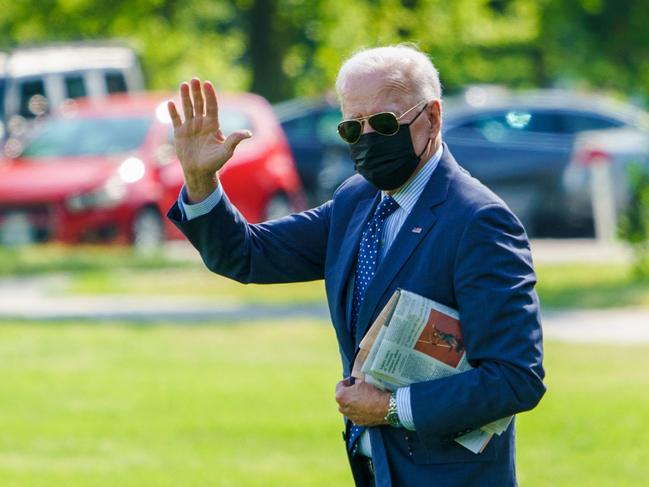
TOKYO ORGANISERS MAKE BOLD CALL ON OLYMPICS
The Tokyo Olympics are “100 per cent” certain to go ahead, the chief organiser said on Thursday local time, but warned that a major coronavirus outbreak mid-Games could slam the door shut on fans.
Tokyo 2020 president Seiko Hashimoto made the comments exactly 50 days before the pandemic-postponed Olympics, which remain plagued by public opposition.
“I believe that the possibility of these Games going on is 100 per cent that we will do this,” Hashimoto told BBC Sport, adding that fans could be locked out during the Games.
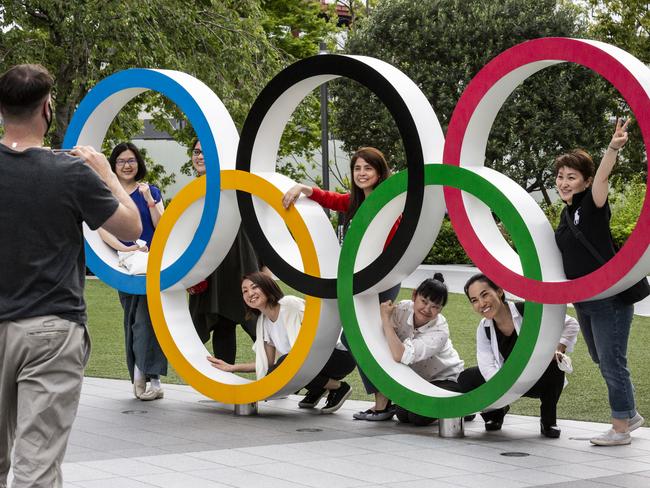
“The biggest challenge will be how we can control and manage the flow of people,” she said.
“If an outbreak should happen during the Games times that amounts to a crisis or an emergency situation then I believe we must be prepared to have these Games without any spectators.”
Overseas fans have already been barred, and a decision on whether to allow domestic spectators is expected after Tokyo’s coronavirus state of emergency ends on June 20.
Despite the lingering uncertainty, organisers marked 50 days to the July 23 opening ceremony by revealing details of the medal ceremonies, including podiums made with recycled plastic. They also released the victory music for the gold-medallists.
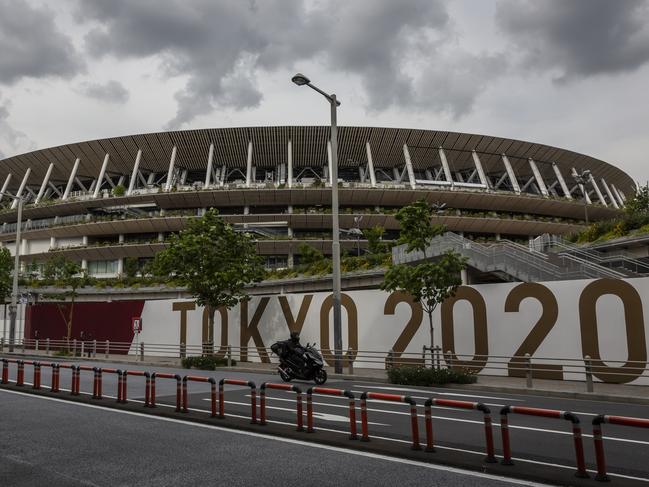
“We have 50 days left. I feel like I can hear the sound of the athletes’ footsteps heading to Tokyo,” Ms Hashimoto said at the ceremony in the Ariake arena, a Games venue.
“We’re fully ready and prepared with infection prevention measures, so please feel safe and reassured coming to Japan,” she added.
“And for Japan to feel safe in welcoming you, I ask you, all the athletes, to be responsible with your actions, to follow the rules.”
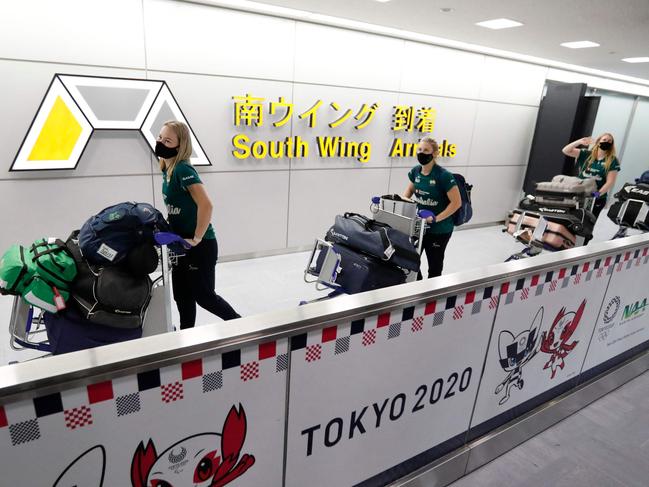
11k AUSSIES STRANDED IN INDIA
Almost 11,000 Australians, including 209 minors, remain stranded in India as the country grapples with a devastating COVID-19 outbreak.
Appearing before a senate committee on Thursday, Department of Foreign Affairs and Trade officials revealed 10,994 people were registered as wanting to return from India, including 1240 listed as vulnerable.
Labor foreign affairs spokeswoman Penny Wong said a series of state lockdowns sparked by hotel quarantine breaches, including one under way in Victoria, was the result of the government’s failure to “take responsibility” for the issue.
She accused Foreign Minister Marise Payne of “self-congratulating” as Australians remained stranded overseas, and locked down at home.
Repatriation flights from India resumed in May after the government lifted a controversial ban on Australians from returning the country at the height of its outbreak.
Ms Payne said since March 500,000 Australians had been returned, which she described as an “extensive undertaking”.
Originally published as Coronavirus world: lockdown eases in India, as spike in cases puts UK’s ‘Freedom Day’ in doubt


